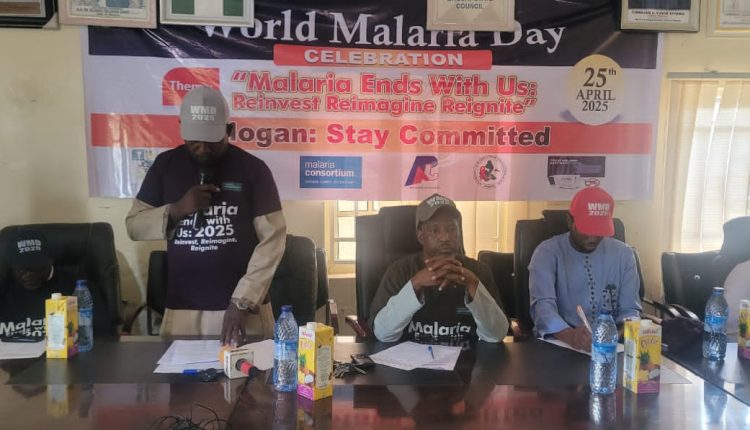Bauchi calls for collective action against Malaria scourge
By Akanji Alowolodu, Bauchi
Bauchi State Government, through the State Agency for the Control of HIV/AIDS, Tuberculosis and Malaria (BACATMA), has emphasized the need for collective action by all relevant agencies in order to combat the malaria scourge which has become a significant public health challenge in the state.
The call was made during a press conference addressed by a malaria consortium to commemorate the World Malaria Day 2025, held at the MHWUN Secretariat in Bauchi on Wednesday.
Executive Chairman of the Bauchi State Agency for the Control of HIV/AIDS, Tuberculosis, Leprosy (BACATMA), Dr. Adamu Sambo, stressed that malaria remains a major public health challenge in the state.
Represented by the Director of Administration and Human Resources, Shehu Yakubu, the EC stated that, “Stakeholders must work together to address it, urging all stakeholders to join hands in reducing the burden of malaria in the state.
He lamented that the State is among the malaria high-burden states in Nigeria as according to the 2021 NMIS, the malaria prevalence in children under 5 in State was approximately 32% of the total figure in Nigeria.
According to him, “Today, we gather to observe World Malaria Day-a day that reminds us of both the struggles we face and the victories we must celebrate in our collective fight against malaria.”
He stressed that “While this marks some progress from past years (in 2015, it was around 40%), the figure still represents a major public health challenge. But we are not helpless. With determination, unity, and innovation, we can turn the tide.”
He added that, “In the past few years, Bauchi state under the leadership of His Excellency Bala Muhammad Abdulkadir, the Executive Governor of Bauchi has taken bold steps to combat malaria through: -Mass distribution of millions of insecticide-treated nets, Seasonal Malaria Chemoprevention SMC and rraining of community health workers.”
prevalence of Malaria in Children Under 5 in Nigeria, he stated that the country accounts for about 27% of the global malaria cases and deaths, making it the country with the highest burden of malaria in the world.
The national prevalence rate among children under 5 years old was 22%, down from 42% in 2010-a significant improvement but still a serious concern.
The prevalence varies widely across regions. Southern states generally have lower rates due to better infrastructure and awareness, while northern states-including Bauchi-continue to experience higher rates.
The Director of Malaria Control at BACATMA, Muhammad Isah Bello, highlighted the agency’s efforts to control malaria, noting that significant progress has been made in the fight against the disease.
However, he emphasized that there is still much work to be done and stressed the need to sustain efforts to ensure everyone has access to effective malaria prevention and treatment.
The Programme Coordinator of Malaria Consortium, Alhaji Umar Babuga Abubakar, emphasized the importance of community involvement in malaria control efforts.
“We need to increase awareness and education on malaria prevention and treatment, particularly in rural areas, to further reduce the disease’s impact,” he said.
Both Islamic and Christian leaders graced the occasion with resounding advice on how to collaborate in an effort to fight against malaria in Bauchi State.
Their presence underscored the importance of interfaith cooperation in addressing public health challenges.
As the state government and stakeholders come together to combat malaria, the message is clear: collective action is key to defeating this public health challenge.
By working together, Bauchi State can reduce the burden of malaria and improve the health and well-being of its citizens.



Comments are closed, but trackbacks and pingbacks are open.